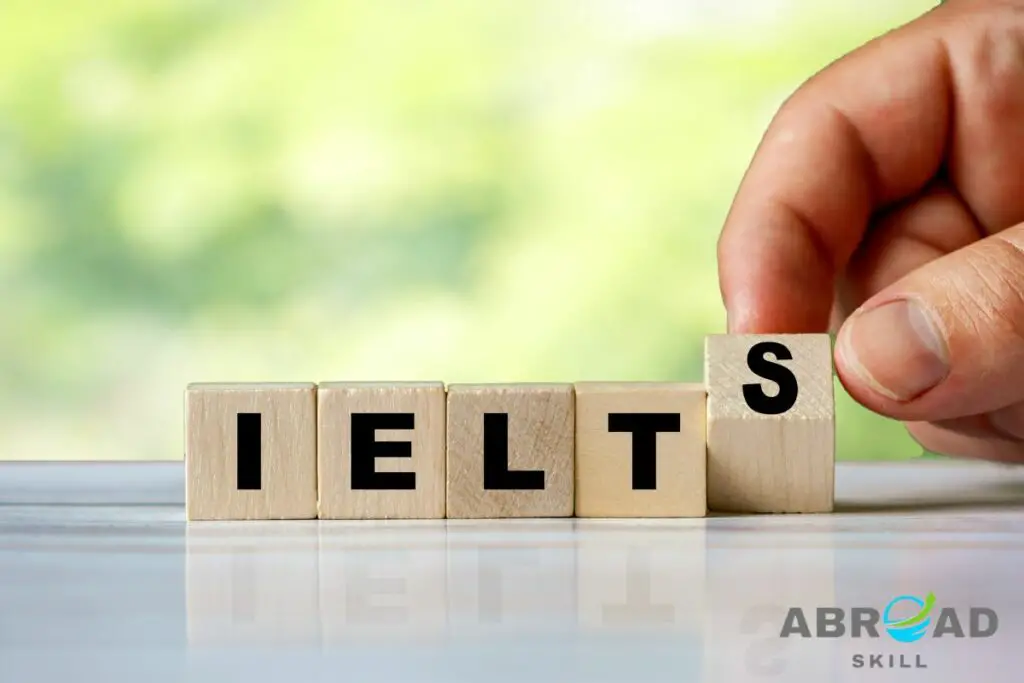Every year thousands of people across the world migrate to English-speaking countries for various purposes such as pursuing higher studies and getting a well-paid job and some others want to settle down there for a lifetime. It is a well-known fact that most of these countries demand that candidates, who wish to seek a visa, prove their proficiency in the English language by clearing any of the English proficiency tests like IELTS, PTE, TOEFL and so on. In this article, we have tried to incorporate all the detailed information regarding IELTS.
IELTS or The International English Language Testing System is conducted with an intention to test the competency of an individual to deal with the four skills in the English language. Listening, Reading, Writing and Speaking are the four different modules in the IELTS examination. The test developers have designed the test to provide a fair and impartial result of the candidate in all the four modules in the test.

The candidates are supposed to achieve the desired individual as well as overall scores as per the requirement of the organization which they are planning to join in the English-speaking nation. IELTS score is accepted by the organizations, universities and the migration department of around 140 countries.
Here is detailed video about IELTS and its different modules
Who is eligible to attend the IELTS exam?
The only eligibility criteria required for attending the IELTS exam is that the candidate should be above 16 years old. The educational qualification, occupation, gender or nationality of the candidate has no role in determining whether the candidate is eligible for attending the test or not.
The candidate’s knowledge of the English language will definitely be helpful for enhancing the IELTS score. As the test is mandatory for academic and immigration purposes the international candidate should be aware of the score requirement and the kind of test he or she should attend.
Next, let’s see the different categories of the IELTS examination.
What are the different types of IELTS exams?
Depending on the purpose of the test, IELTS exams are of two types. They are:
- Academic IELTS
- General IELTS
Academic IELTS is conducted for helping the candidates, who want to get a student or work visa in association with their academic or occupational purposes, to prove their proficiency in the English language. Whereas, General IELTS is taken by individuals who plan to migrate to English-speaking countries like Canada, Australia, Newzealand and so on for getting a permanent residency in that nation.
Academic IELTS vs General IELTS
- Listening and Speaking tests are similar for both academic and general IELTS tests.
- The IELTS test mainly focuses on testing your language skills at academic space or in the workplace.
- General IELTS test basically evaluates the candidate’s ability to use the English language in daily life.
FOUR MODULES IN IELTS EXAM
There are four modules in the IELTS exam namely listening, reading, writing and speaking. The first three tests are conducted on the same day without any break and the session lasts for 2 hours and 40 minutes. The speaking test is conducted either on the same day or on another day and the test is conducted individually for each candidate.
Listening
The IELTS exam usually begins with the listening test. The total time allowed for the candidate is 40 minutes, out of which during the 30 minutes the candidate can listen to the different recorded audios and can write down answers on the question booklet while listening to the audio. The last 10 minutes can be used for copying the answers into the answer sheet.
There are a total of 40 questions which carry one mark each. The listening session is divided into four parts and there are different types of questions being asked based on the recordings. The candidate will listen to a couple of varying English accents during the listening test.
Reading
The IELTS reading test takes a total of 60 minutes and the candidate will get long texts chosen from journals and articles based on various academic or general topics. The candidate is expected to give answers to the questions asked based on each text.
There are a total of 40 questions with one mark each. The reading session is subdivided into three parts. The candidate’s skill to identify and point out specific information from the given test is being assessed in this test. The total score of the test is 40.
Writing
The IELTS writing module mainly consists of two tasks. The candidate should attend to both tasks. The total time duration of the test is 60 minutes. The candidate must prepare and write down the answer in the given time.
The score of task one is 3 and task two is 6 and the total band score of the module is 9. The grammatical accuracy and lexical capacity of the candidate have a major role in deciding the score of the test.
Speaking
The IELTS speaking test is mainly divided into 3 parts. The entire session is being recorded for assessment. The test may last between 12 and 20 minutes. The examiner begins the test by introducing himself or herself.
The candidate also gets a chance to give a short self-introduction. In the first task, the examiner asks some questions related to the personal life of the candidate, which lasts for 3 minutes. Then, for the second task, the candidate will get a cue card based on which the candidate is expected to speak for 2 minutes continuously. In the third part, the examiner poses follow-up questions associated with task 2. The vocabulary, grammar and fluency of the speaker are being keenly monitored by the assessors during the evaluation.
Who conducts the IELTS exam?
The IELTS test is conducted by the British Council in collaboration with IDP Education Australia and Cambridge English Language Assessment. Since July 2021, the British Council has stopped organizing IELTS tests in India and at present IDP has taken over the authority to organize IELTS tests in India.
The candidate can take a test by paying a fee amount of INR 15500 for IELTS exam. The fees are the same for taking Academic and General IELTS. Usually, the Listening, Reading and Writing tests are conducted on the same day. The Speaking test is usually scheduled in the same week before or after this.
How to book an IELTS Exam?
Let’s have a look into the steps involved in booking an IELTS test:
- Log on to our IELTS India website.

- Click on the Register option as the first step.
- Select your preferred test – computer-delivered IELTS/ paper-based (IELTS, IELTS for UKVI or Life Skills)
- Select your test type/module – Academic or General Training for IELTS, IELTS for UKVI, A1 and B1 for Life Skills
- Pick your desired test location/city
- Select your desired date and time slot
- Fill in all the details. Make sure to upload a clear, scanned colour copy of your passport to complete the process.
- Proceed to pay the test fee.
- After the successful completion of payment, your booking is finished.
Recommended blog:
DIFFERENT WAYS TO TAKE IELTS EXAM
There are two ways in which the IELTS exam is being conducted. One is IELTS on paper and the second option is IELTS on the computer. The candidate can choose the best option as per their convenience at the time of booking the exam.
In a paper-based exam, the candidate is supposed to write down the answers of the listening, reading and writing tests on a sheet of paper using a pen and pencil. The Speaking test is a direct face-to-face interaction between the test taker and the examiner. All four tests are conducted at the exam centre. The result of the test usually gets published in 14 days.
In the computer-based IELTS test, the candidate should type the answers of listening, reading and writing tests using a computer. The Speaking test is conducted through a zoom platform in the test centre. The result can be expected in 3 days. Those who wish to get quick feedback of the test can definitely opt for IELTS on the Computer test.
How is the IELTS score calculated?
IELTS score is calculated in terms of bands ranging from 1 to 9. The highest score is 9 and the lowest score is 1. The candidate is expected to have a clear idea about the individual score that he or she needs to score for each module and also about the overall score required.
The scores of listening and reading modules are first calculated in terms of the number of right answers given by the candidate and then it is converted into band scores. For writing and speaking modules the assessment is done on the basis of the assessment criteria developed by the test organizers.
Each organization demands different scores for analyzing the language skills of visa seekers. The scoring pattern of academic and general IELTS are almost similar. Candidates with proper practice can easily get the desired score without much difficulty.
Conclusion
Knowing the English language is always beneficial for your career growth along with your professional skill. Huge opportunities are now available in most English-speaking countries. Hence, do not waste your precious time. Grab the opportunity at the earliest for which you need to clear the IELTS exam first. We are here for those aspirants who dream high. Hope this article was helpful for you to understand the IELTS exam in detail with clarity.

